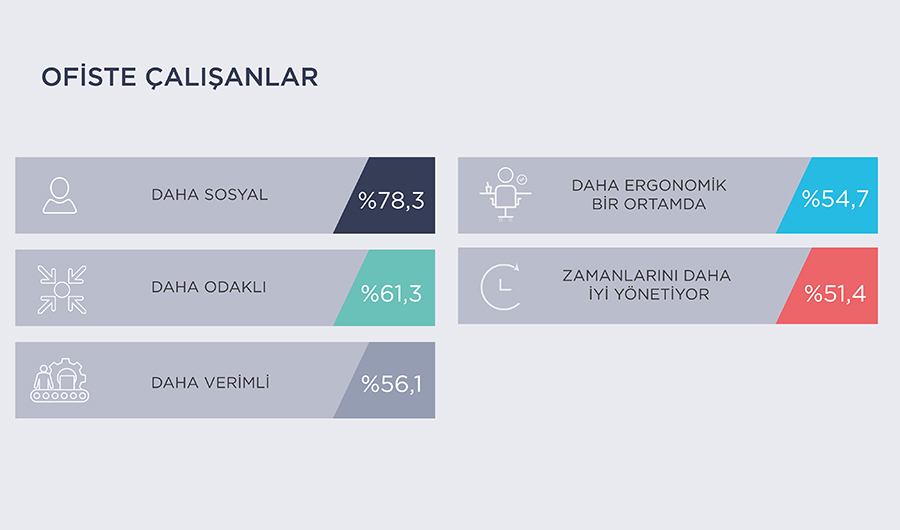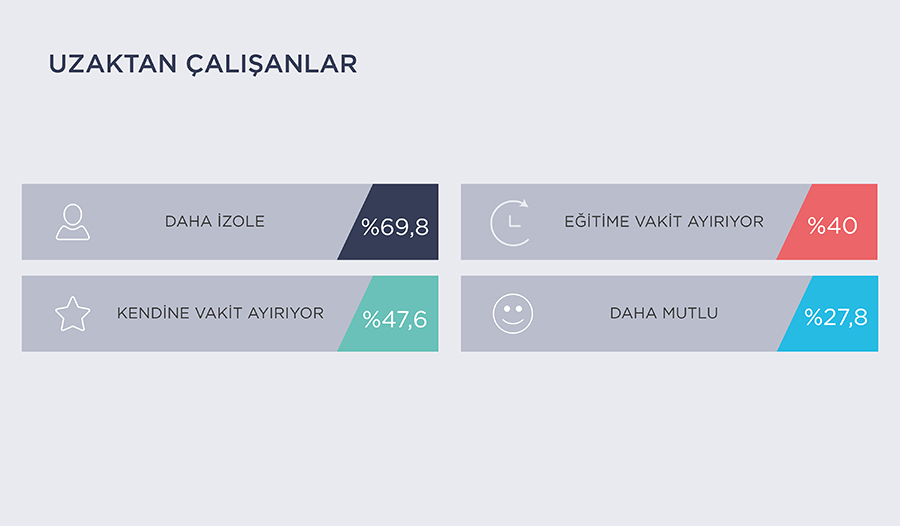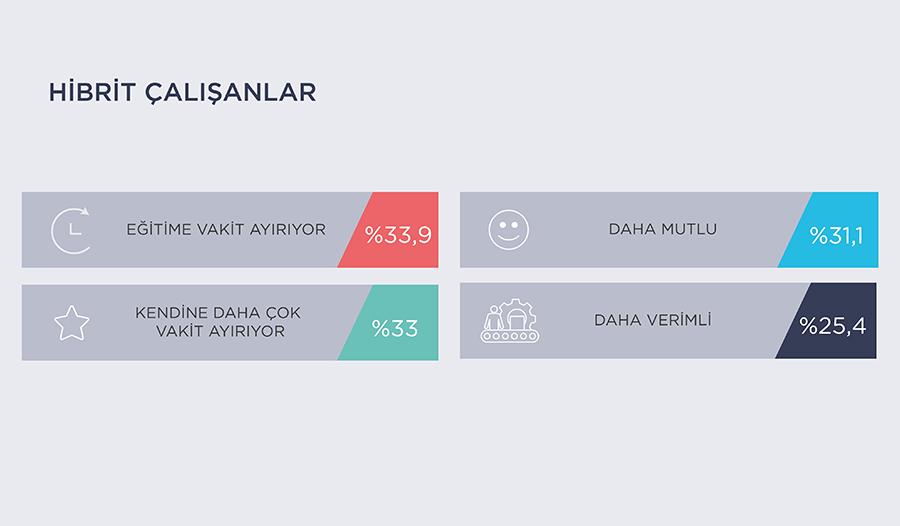Implications of the work model
Implications of the work model
In our second research study, focusing on 'Work Life and Well-being' we observed the effects of the pandemic on work models and habits. We had previously examined the dilemma of socialization needs and remote working in our last blog. In this blog, we will discuss the changes brought by the evolving work models during the pandemic.

In-office workers are more social and focused
Before the pandemic, working in an office was the most common work model. However, the pandemic made remote working a necessity, gradually giving way to the hybrid work model, which the business world has been signaling will become permanent.
One of the key benefits of working in an office could be fully satisfying the need for socialization. According to our research results, in-office workers predominantly feel more social (78.3%), more focused (61.3%), more productive (56.1%), and manage their time better (51.4%) in a more ergonomic environment (54.7%).
Due to the unexpected onset of the pandemic, not everyone had the opportunity to improve the conditions for working from home, and particularly the comfort provided by ergonomic office furniture was not fully replicated at home. This naturally led to employees missing working in the office.
Remote workers are more isolated
Remote working was not a very familiar model for us until the pandemic. As social beings, we enjoy being together, having face-to-face conversations, and socializing even in a busy work schedule. However, it's also true that not every office provides a productive work environment. Some offices may not be comfortable enough for workers due to overcrowding or lack of comfort. Therefore, for those who could create a work environment at home during the pandemic, it was much more productive and allowed them to manage their time more effectively.

Participants in our research who worked remotely indicated that they felt more isolated (69.8%), spent more time on themselves (47.6%), education (40%), and were happier (27.8%).

Hybrid workers are more education-focused
Here is the new work model of business life: hybrid working. When the need for socialization led employees to return to the office, and companies saw significant cost advantages, especially in fixed expenses, from the transition to working from home, the hybrid work model became inevitable, with health concerns also playing a role.
Following the pandemic, many companies, from startups to large corporations, announced they would transition to a hybrid work model. Although it has not been fully experienced yet, adapting to it will not be too difficult for both employees and companies.
Participants in our study who have been working in a hybrid model for a relatively short period reported spending more time on education (33.9%) and themselves (33%), feeling happier (31.1%), and being more productive (25.4%).
Regardless of the work model, all employees want to feel comfortable, productive, happy, and have enough time for themselves. The hybrid work model, which allows them to better manage their time, devote more time to education for personal development, and maintain healthy communication with team members, is becoming the new normal. Companies need to implement some structural changes to fully adapt to this model, and employees need to invest in suitable office furniture to make their home-offices as ergonomic as their office spaces to create a healthy work environment.
Stay tuned for our new blog post where we will continue to delve into the results of our research!
Latest Articles
Sustainability and Flexibility Take Center Stage in 2025 Office Design
2025 Office Design Trends
-
Shaping the Future with Sustainable Materials
-
The Future of Office Design: A Performance-Based Approach
-
2024 Office Furniture Trends: Innovative and Dynamic Workspaces
-
How to Design an Efficient Office
-
Office Furniture Use in the Tourism Sector
-
Furniture in Co-working Spaces is Simple, Colorful and Modern
-
New Generation Offices for Gen Y and Z
-
Office Furniture Use in the Education Sector
-
We Will Be Back to Office Despite Everything
-
Resimercial Design in Modern Workplaces
-
Ergonomics = Comfort + Ease + Efficiency
-
A Few Tips for Home Offices
-
Offices Meeting the Expectations of Generations Y and Z
-
Shape of Tomorrow
